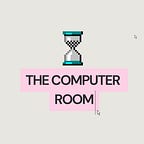Fictophilia. Today, I spoke to fictophile/fictosexual Cait Calder about what it’s like to have a fictional crush.
When I first talked about fictosexuality over at UnHerd, I got a lot of pushback: Why does this need to be labeled? Don’t all women do this?
To some extent, sure. The success of Twilight and Fifty Shades is illustrative. Before that, Stephen King wrote an entire book about women's tendency to fall in love not only with fictional characters but with fiction itself—Misery. But that doesn’t mean it’s not worth both labeling and exploring. I’m not of the school of thought that the exercise of labeling these more fringe expressions of sexuality is excessive or decadent. If I’ve learned anything from being Terminally Online, it’s that most of these things aren’t “fake.” They’re unconventional and our language hasn’t caught up the way even television has impacted people’s emotional landscapes.
Online dating, objectum sexuality (when you fall in love with an object, like a robot or a rollercoaster), the limerence of writers like Dante Alighieri, fandom, divine devotion, and fictophilia all exist on a spectrum.
What are the contours of that spectrum, though? “Loneliness” isn’t a good enough answer. I’m still figuring it out.
Have you noticed… Two related thoughts I’ve had to all of this:
I feel like with faeries/witches in particular, there was a real shift between thinking of them as outside entities to fear or treat with reverence to identifying with them. I wonder why that is. Identification seems to be one of our chief modes of engagement.
Fictional characters are more often treated as people than they are art—sometimes even going as far as being “victims” of their authors.
Upcoming episodes of The Computer Room. It’s been a minute since I put out a full episode of TCR. They’re coming, I promise, I’ve just got a lot on my plate between stuff going on in my personal life and other freelance projects.
On the docket, though: furries, otherkins, and some interviews with e-celebrities past.
One of the big things that slow me down with editing is—and this is going to sound lame as hell, so please forgive this—Gio and I both have a tendency to go off on crazy tangents and love talking to one another, so inevitably, every episode is like 6 hours long and a big time commitment to edit. Thank god neither of us drinks on air, could you imagine?
Femcel Fridays. I’m still collecting essays about femcels (movie reviews, personal essays, histories). I’ve received some great internet culture submissions, but only one was about femcels! I want to hear from women.
Submit by responding directly to this email.
Gift guide…? I wanted to do a gift guide at the top of the month, mostly because everyone else was doing one, but nothing stood out to me.
No list of favorite products I can smuggle into my blog under the guise of a suggestion, either.
Maybe it’s because I’m not a big gift-giver myself. Or because I don’t really decorate my living spaces. There are no home goods I feel compelled to evangelize or candles that make me feel like I’m doing my due diligence as a young-ish urbanite.
Then there are books. When you buy people books, it’s a symbolic gesture, the recipient rarely ends up reading them, let’s be real. I have a similar feeling about using this space to plug the books, Substack/podcast subscriptions, or magazines authored by my friends, even if I enjoyed them myself. This is all deeply personal stuff. Is a yearlong sub to Blocked And Reported a good stocking stuffer? Or MemeAnalysis’s book of poetry? Does your girlfriend want to unwrap a copy of The Case Against the Sexual Revolution or Rethinking Sex even if it’s up her alley? Up to you.
So, long way of saying, no gift guide. Use your intuition. Sometimes, when I feel moved, I like to scour eBay for antiques that show my cadre of autist pals that I’m paying attention to their special interests.
Right now, though, I think I’m both post-gift and weirdly, post-shopping.
The Internet completely destroys what it means to be an embodied person. I’ve been reading too many of these meandering, stream-of-consciousness meditations about being online, please excuse my own contribution to that discourse:
The Internet is both an extension of our bodies and the collective unconscious. We live in a world where identity is supposedly no longer fixed—nothing is. There are no boundaries in any sense of the word.
Time and physical space haven’t become meaningless, but their meanings have changed.
Our imaginations are more accessible than ever. They are no longer private.
Many of our relationships are completely disembodied, everyone is getting to know one another “soul-first.” That’s a lot of pressure, some people are just better in the physical world.
We are no longer accountable to one another—if someone bothers you, you can just ignore them. Erase them.
Mediated communication conditions us to be hypervigilant, to develop a sixth sense about how “people really feel.” (Is the period in that text meaningful? Is that a subtweet?)
Everyone is text— to be re-interpreted, de-contextualized, and re-purposed. We are all living history. We are all literature. I think of all the people who have vast screenshot libraries of me, and who reconfigure those screenshots in any which way they like to build a person completely divorced from who I am in reality, or who I think I am. But everyone’s in this situation.
Many people experience great tension between who they think they are and who other people insist they are, a major fault line of the culture war.
A lot of effort is put into making sense of this climate, and the reactions to it. It often comes down to ideology, not infrastructure. I don’t think that’s quite right.
It’s not what we think. It’s how we think.













